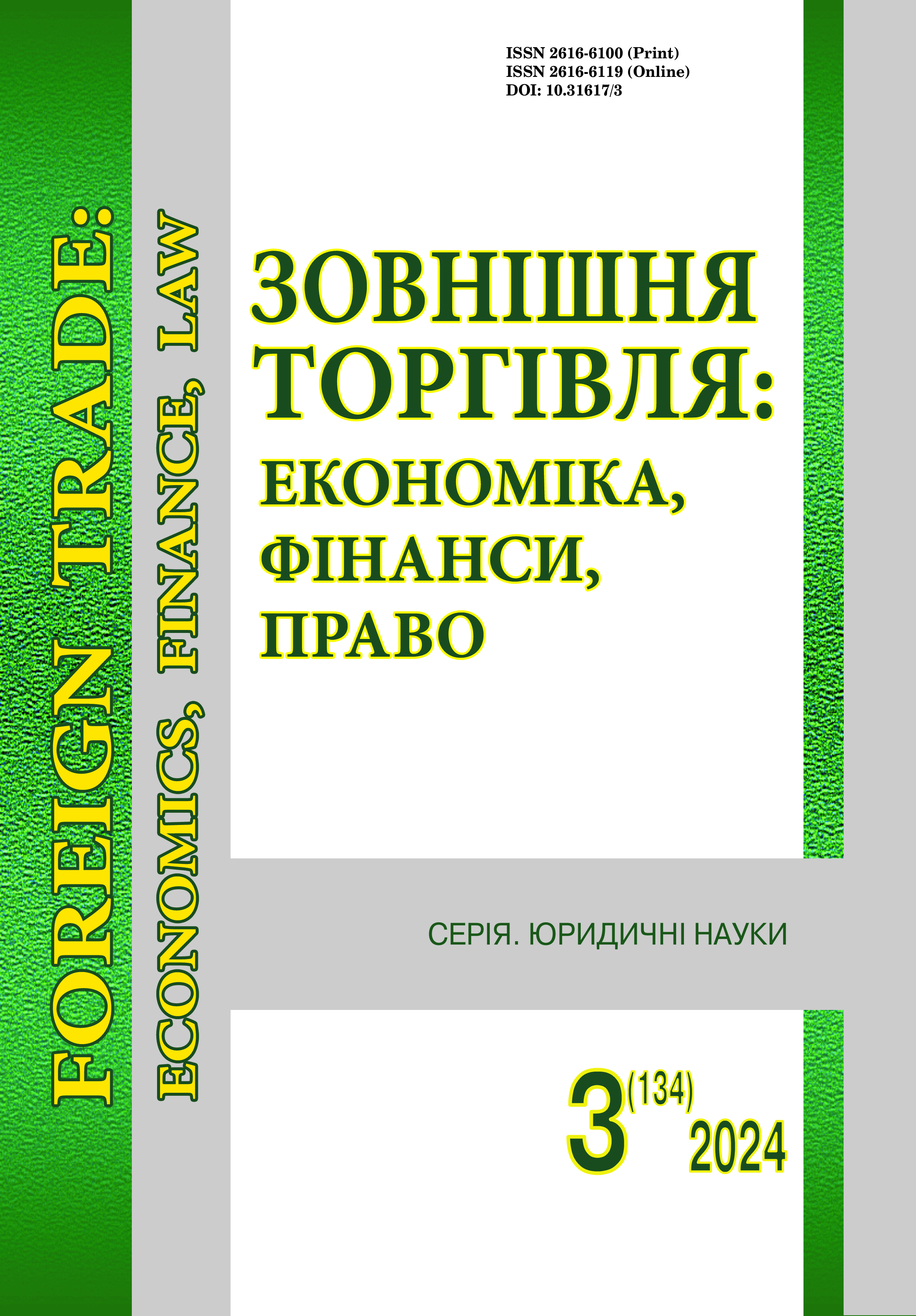Global financial crisis, the coronavirus pandemic, war and what else is (not) considered a significant change in circumstances (Article 652 of the Civil Code of Ukraine)
DOI:
https://doi.org/10.31617/3.2024(134)05Keywords:
fundamental change of circumstances, complications, force majeure, contract, obligation, contract law, war, coronavirus, quarantine.Abstract
The study is devoted to Article 652 of the Civil Code of Ukraine, according to which a party has the right to demand termination or amendment of the contract if the circumstances have changed fundamentally compared to what they were at the time of the contract conclusion. This Article is one of those that parties to contractual disputes invoke very often, but almost never successfully. The purpose of this paper is to try to explore the reasons for this phenomenon in Ukrainian judicial practice and to outline the conditions under which one can count on success in proving that the circumstances have changed substantially enough to meet the conditions for application of Article 652 of the Civil Code of Ukraine. Methodologically, the study is based on the analysis of the practice of the highest courts of Ukraine with inclusions of the comparative legal method and references to the rules of international contract law and the practice of other jurisdictions. In the first, theoretical part of the study, the author offers a general explanation of what a fundamental change of circumstances is and what role it plays in the dynamics of contractual relations between the parties. The author compares a fundamental change of circumstances with force majeure. Next, five conditions for the applicability of Article 652 of the Civil Code of Ukraine were considered and commented on. It is followed by an analysis of significant categories of cases that illustrate the difficulty in proving a fundamental change of circumstances. These are cases related to such historical events as the global financial crisis of 2008, the ban on gambling in Ukraine in 2009, the nationalisation of Privatbank in 2016, the coronavirus pandemic and related quarantine restrictions, and finally the war and the full-scale invasion of the Russian Federation into Ukraine. The review and critical analysis of landmark court decisions makes it possible to give concrete meaning to the elements of a fundamental change of circumstances with specific content and to identify trends that have marked themselves in the judicial practice.
References
UNIDROIT. (2016). Principles of International Commercial Contracts. https://www.unidroit.org/english/principles/contracts/principles2016/principles2016-e.pdf
Anatoniolli, Luisa, & Fiorentini, Francesca. (2010). A Factual Assessment of the Draft Common Frame of Reference. Walter de Gruyter. https://doi.org/10.1515/9783866538696 DOI: https://doi.org/10.1515/9783866538696
Hondius, Ewoud, & Grigoleit, Christoph. (2011). Unexpected Circumstances in European Contract Law. https://doi.org/10.1017/CBO9780511763335 DOI: https://doi.org/10.1017/CBO9780511763335
The High Commercial Court of Ukraine. (2010, June 1). Resolution of the High Commercial Court of Ukraine in case No. 42/254-09. https://reyestr.court.gov.ua/Review/10000135
Supreme Court of Ukraine. (2010, April 28). Resolution of the Supreme Court of Ukraine in the case № 51/506. https://reyestr.court.gov.ua/Review/9473767
Supreme Court of Ukraine. (2012, February 20). Resolution of the Supreme Court of Ukraine. https://reyestr.court.gov.ua/Review/22207353
Supreme Court. (2018, October 16). Resolution of the Supreme Court of Ukraine in the case № 910/17686/17. https://reyestr.court.gov.ua/Review/77263637
Supreme Court. (2018, April 17). Resolution in the case № 905/1409/17. https://reyestr.court.gov.ua/Review/73700070
Supreme Court. (2019, September 19). Resolution in the case № 910/10899/18. https://reyestr.court.gov.ua/Review/84484684
Supreme Court. (2019, July 2). Resolution in the case № 910/15484/17. https://reyestr.court.gov.ua/Review/83000592
Supreme Court. (2019, November 20). Resolution in the case № 500/373/17. https://reyestr.court.gov.ua/Review/85966484
Supreme Court. (2020, February 25). Resolution in the case № 922/2279/19. https://reyestr.court.gov.ua/Review/88027352
Supreme Court. (2021, July 21). Resolution in the case № 912/3323/20. https://reyestr.court.gov.ua/Review/99277353
Supreme Court. (2021, February 24). Resolution in the case № 910/8425/19. https://reyestr.court.gov.ua/Review/95343928
Supreme Court. (2021, August 31). Resolution in the case № 910/15264/21. https://reyestr.court.gov.ua/Review/106078967
Supreme Court. (2022, July 13). Resolution in the case № 363/1834/17. https://reyestr.court.gov.ua/Review/105852863
Supreme Court. (2023, June 14). Resolution of the Supreme Court of Ukraine in the case № 910/8232/22. https://reyestr.court.gov.ua/Review/111739215
Supreme Court. (2023, November 7). Resolution in the case № 920/660/22. https://reyestr.court.gov.ua/Review/114860459
Supreme Court. (2024, March 15). Resolution in the case № 500/89/17. https://reyestr.court.gov.ua/Review/117823566
Supreme Court. (2024, January 17). Resolution in the case № 925/155/23. https://reyestr.court.gov.ua/Review/116606332
Supreme Court. (2024, April 25). Resolution in the case № 910/5489/21. https://reyestr.court.gov.ua/Review/118626667
Law of Ukraine "On Consumer Lending" № 1734-VII (2016, November 15). https://zakon.rada.gov.ua/laws/show/1734-19#Text
Law of Ukraine "On Chambers of Commerce and Industry in Ukraine" № 671/97-VR (1997, December 2). https://zakon.rada.gov.ua/laws/show/671/97-%D0% B2%D1%80#Text
ІСС. (2020, March). Icc Force Majeure and Hardship Clauses. https://iccwbo.org/wp-content/uploads/sites/3/2020/03/icc-forcemajeure-hardship-clauses-march2020.pdf
Resolution of the Cabinet of Ministers of Ukraine "Some issues of ensuring the stability of the financial system" № 961 (2016, December 18). https://zakon.rada.gov.ua/laws/show/961-2016-%D0%BF#Text
CC of UKRAINE. (2003). Doc. 16.01.2003 № 435-IV. Current edition of 27.04.2024. https://zakon.rada.gov.ua/laws/show/435-15#Text
Additional Files
Published
How to Cite
Issue
Section
License

This work is licensed under a Creative Commons Attribution 4.0 International License.
This work is licensed under a Creative Commons Attribution 4.0 International (CC BY 4.0)







